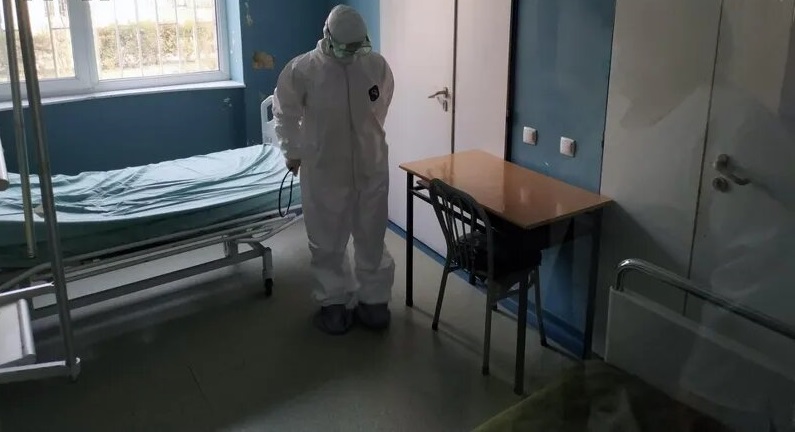4 with flu symptoms remain in Tbilisi hospital amid declaration of global health emergency

Georgia has no cases of the new coronavirus, which has already killed 213 in China and has spread to 18 countries. Photo:IPN.
Two Chinese and two Georgian citizens remain in the Tbilisi infectious disease hospital, with one of the two Georgian citizens having been in the Wuhan province of China two weeks ago, which is the epicenter of the outbreak of the new coronavirus.
The Chinese citizens are minors, with Georgian health officials saying that they tested positive for the A type virus, excluding the nCOV-2019, which is the new coronavirus which has been declared a global emergency by the World Health Organization (WHO) yesterday.
The Chinese children were among the nine Chinese citizens who were transported from Georgia’s mountainous Gudauri resort to Tbilisi late yesterday with symptoms of the flu.
Their parents and relatives were allowed to leave the hospital shortly before as there were was no presence of the virus while the children were placed in an isolated room before the results of tests for different viruses became known.
 Head of the Georgian National Disease Control Centre Amiran Gamkrelidze says that there is no reason to panic about the new coronavirus in Georgia.
Head of the Georgian National Disease Control Centre Amiran Gamkrelidze says that there is no reason to panic about the new coronavirus in Georgia.
Georgian health officials say that the Georgian woman who was in Wuhan and came back to Georgia two weeks ago “has a low temperature and the symptoms she has do not look like those of the new coronavirus.”
They say that the 24-year old, male Georgia citizen also does not have pneumonia or other typical symptoms of 2019-nCOV.
However, Georgia continues to screen both of them for different viruses and infections to exclude 2019-nCOV, as the country, like many foreign states, is unable to directly test them for the new coronavirus.
We have to test patients for about 20 viruses and infections to exclude 2019-nCOV, which takes time,” Georgian health officials say.
Turkish media reported yesterday that Turkey will evacuate seven Georgian citizens from Wuhan, together with Azerbaijani and Albanian citizens.

Photo: BBC.
However, Tbilisi has not neither confirmed, nor denied the information.
The new coronavirus, which first emerged in the city of Wuhan, Hubei province of China, at the end of 2019 has already killed at least 213 in China and infected almost 10,000.
The WHO said there had been 98 cases in 18 other countries, but no deaths.
Most international cases are in people who had been in Wuhan.
Declaring a global emergency allows the WHO to support lower- and middle-income countries to strengthen their disease surveillance - and prepare them for cases.
WHO has previously declared five global public health emergencies: Swine flu - 2009; Polio - 2014; Zika - 2016 and Ebola, twice, in 2014 and 2019.
The new coronavirus, which is thought to have emerged from illegally traded wildlife at a seafood market in Wuhan, can spread between people.
The incubation period can range from two to 10 days.
 Tweet
Tweet  Share
Share